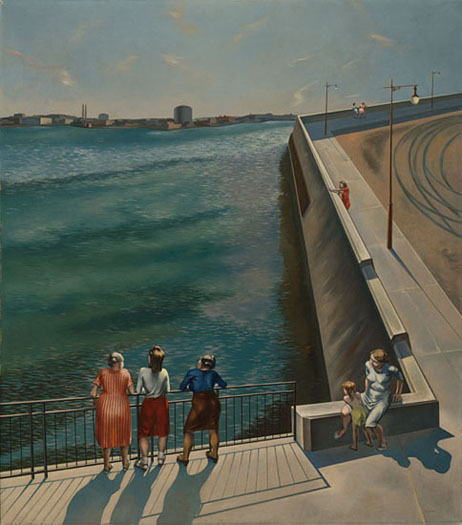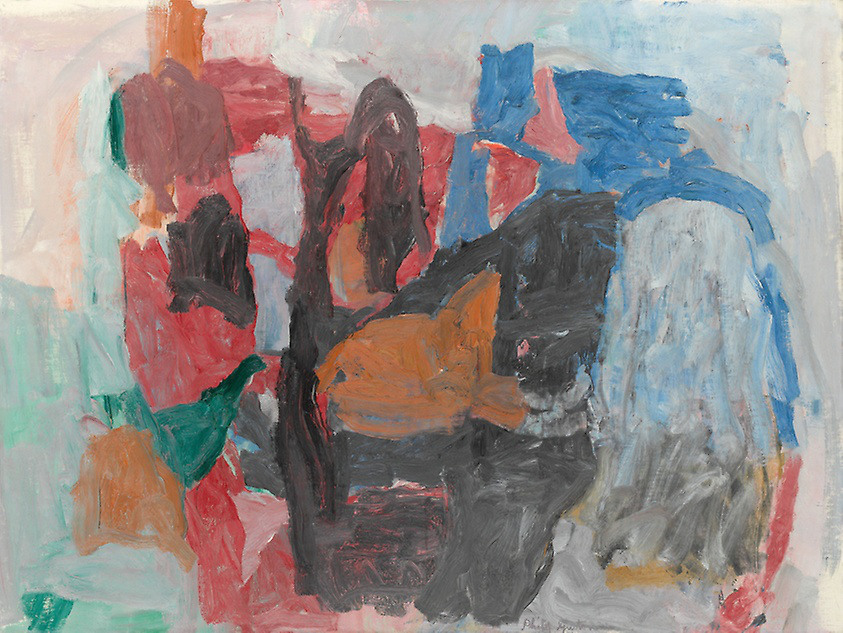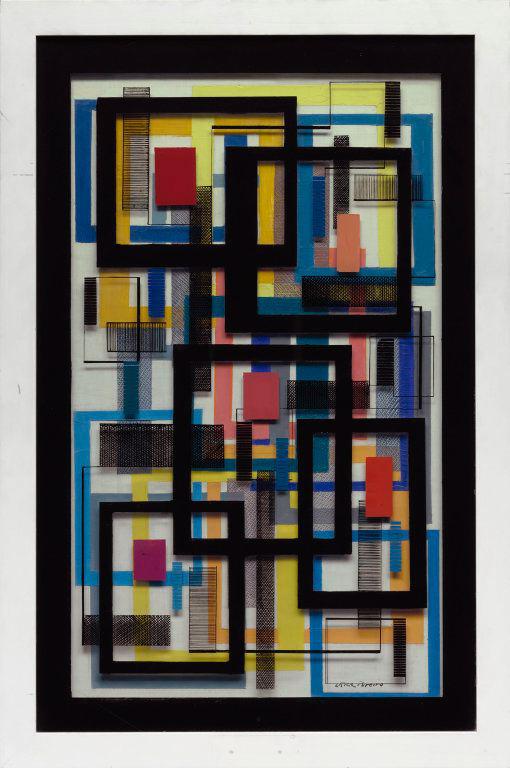In the 1930s, Philip Guston was involved with the mural movement and the work of Mexican artists such as Diego Rivera. On his arrival in New York in 1935–36, he joined the group of artists working for the Works Progress Administration’s Federal Arts Project. He spent the years after World War II developing a personal style that was inspired by both realist and abstract influences. By the early 1950s, he left representational imagery behind entirely, developing a lyrical Abstract Expressionist style that is typified by Rite. His paintings of this period largely consist of irregular blocks of gestural strokes and marks of color floating within the picture plane, often grouped toward the center of the composition. Guston’s most radical shift came in the late 1960s, when he confounded the art world with a new figurative style in which he used blunt cartoon shapes to create a personal iconography.


